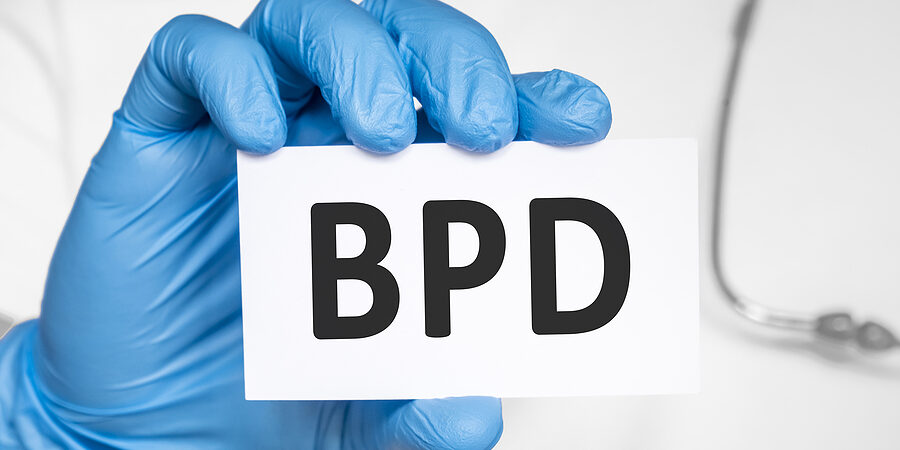Borderline Personality Disorder, or BPD for short, is a serious mental disorder. However, it often gets less attention than other interrelated but distinct mental health issues, such as depression and anxiety. In this blog, we’ll discuss the basics of BPD, how to recognize it, and the steps you may need to take if you believe you or a loved one needs help with BPD treatment. Let’s get started.
What Is Borderline Personality Disorder (BPD)?
Borderline personality disorder is a mental health disorder that affects about 1.4% of the US adult population, and about 75% of the affected individuals are women, so this condition is much less prevalent in men.
This disorder negatively affects the way you think and feel about yourself and others, which can result in problems functioning in everyday life, and maintaining relationships, employment, and a healthy day-to-day routine.
BPD often results in self-image issues, problems managing behavior and emotions, and a pattern of unstable and unhealthy relationships. Most people with BPD have a fear of abandonment and instability in their lives, and have difficulties being alone.
However, a tendency to be impulsive, anger quickly, and frequent mood swings may make it difficult to keep others close to you and form loving, stable, and healthy loving relationships. This disorder usually begins in early adulthood, and tends to get better with age – older individuals usually do not experience BPD symptoms as intensely.
How Can I Recognize BPD? The Signs Of Borderline Personality Disorder
Whether you’re concerned about yourself or a loved one, there are some patterns of behavior that are very common in people with BPD
- A very intense fear of abandonment
- A pattern of intense and unstable relationships, where your attitude about another person may change very quickly (believing they are loving one second and cruel the next, etc.)
- Rapidly and constantly shifting values and goals, and other changes in self-image and identity
- Short or prolonged periods of losing contact with reality,
- Stress-related paranoia
- Impulsive and risky behaviors, such as taking drugs, drinking to excess, reckless driving, unsafe sexual behaviors, shopping sprees, or self-sabotage such as quitting a good job or ending a healthy, positive relationship
- Dramatic mood swings that may last from a few hours to a few days, often shifting from periods of intense happiness to anxiety, shame, and irritability
- Very intense and inappropriate anger. People with BPD often lose their temper, have physical fights, or retreat into being very bitter or sarcastic
What Can I Do About BPD? Understanding Common Treatment Options
Treatment for BPD typically consists of psychotherapy, also known as “talk therapy.” You will need to see a mental health professional to be diagnosed, and to meet with a therapist and develop a program that works for you.
The goal of psychotherapy is to help you understand your BPD, improve your ability to function, manage uncomfortable emotions like anger and anxiety, reduce impulsive behaviors, and help you become more aware of your feelings and those of others to improve your relationships.
Medication is not always used, but may be added if your therapist believes it may be helpful. Currently, the FDA has not approved any drugs specifically for BPD, but medications like antipsychotics, mood stabilizing drugs, and antidepressants may be used to treat co-occurring issues like aggression, anxiety, impulsiveness, and depression.
In addition to this, you may need to be treated for other mental health disorders that commonly co-occur with BPD, such as substance abuse/misuse and addiction.
People with BPD can live very fulfilling and happy lives when their conditions are properly managed, and since BPD tends to decrease in severity over time, getting treatment as a young adult and continuing to get proper treatment will ensure that you can live a happier, healthier, and better life. If you recognize signs of BPD in yourself or another person close to you, it’s important to get help right away.
See An Expert Counselor To Begin Your Recovery Today
At the Dr. Quintal & Associates Counseling Center, we have a variety of specialists who use diverse approaches to therapy and counseling. If you believe you may have BPD, it’s important to get help from your primary care physician, and if therapy is recommended for your treatment, our team is here to help. Contact us now for a free consultation, and get the help you need.







